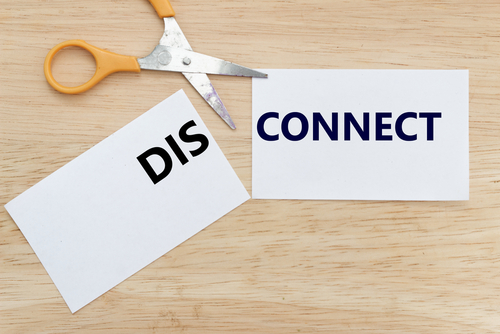Wounds
Through my work as a psychotherapist, I have seen the wounds that women experience and how those wounds affect their parenting. My own wounds affected my parenting. This truth motivated me to become a coach to wounded mothers. I want to help women heal. I realized that women who have been hurt in their past have wounds that still require attention and healing.
I have three topics to cover here.
1) I want to discuss wounds.
2) I want to talk about what the Self and what it is.
3) Discuss disconnection from the Self.
Let’s start with wounds. Wounds may be emotional, like being told you’re worthless, stupid, or will never amount to anything. Wounds may be physical, like sexual or physical abuse or domestic violence. Neglect is also a wound, like not being properly care for when you were to young to care for yourself. Of course, there’s other types of woundings, but these are the three big ones, emotional, physical and neglect.
These wounds typically occur before a woman becomes a mother. Often early in childhood. If a woman has not addressed these wounds and worked towards healing, they will show up in her parenting. They’ll show up in how she engages with her children, the choices she makes because she is mothering from a wounded place.
I also want to talk about how a woman might respond to her wounding. The responses can be internal or external. Her internal response is related to what she might say to herself. She may be critical of herself. Tell herself she’s dumb or incapable. She may have anxiety or depression that makes it hard to function. These are all kinds of internal responses. The external responses are how she might act out. She may over-drink or overeat. She may use drugs or act out sexually. These are external responses to wounds.
Why does she act out? Why does she inflict pain internally as a response to a hurt that happened to her? She does this to protect herself from future hurts and further wounding. It may not make sense to become depressed or critical to avoid further harm. However, this is an internal system designed to keep her from hurt.
The wounding changes her. She is not the same person after the wound happens as we were before the wound happened. Think about your own wounding and think about who you were before that happened to you and who you became after it happened. You were not the same person. And so if the change resulted in you becoming depressed or becoming angry and you weren’t that way before the wound happened, then that’s the change that occurred with you.
My Wounding
When I consider how my wounding at 10 years old changed me, I know I became a different person. I changed in three major ways. First of all, I became a people pleaser. I wanted to make sure that people were happy and that things went the right way for others and that I was seen positively. How I made sure I was seen positively was I did what other people expected me to do. Secondly, I became a critic/perfectionist. I was critical of myself when I wasn’t perfect or when things didn’t turn out perfectly. Lastly, I became really angry. Those qualities were not who I was before the wound. I became a people pleasing, perfectionistic, angry 10-year-old to protect myself from further wounding.
Consider who you were before the wound, who you became after the wound, and how that served to protect you. Who you became after the wound but before you became a mother is also the person who parented your children. In my case. the people pleaser, the rager, the critic, and the perfectionist showed up in my mothering. These changes that happened as a type of self-protection. I would people please to keep people happy with me and not to get hurt. If that didn’t work, I raged to keep them at a distance and to keep me safe. I then criticized myself for not being perfect because I thought that would keep me from harm.
The Self
Let’s briefly discuss the Self and what it is. I titled this blog Wounds and Disconnection from the Self. What is the self? Who is the Self? The Self is the part of you that can never be harmed by your experiences. So no matter what happened to you growing up that we call the wound, the trauma, the Self was never harmed by it. But here’s the thing, our parts don’t know that the Self can’t be harmed. These roles that got created as a result of the wound, such as my critic that got created as a result of my wound or the people pleaser, they are not aware that the Self is healthy. As a matter of fact, those parts believe they need to protect the Self from being wounded again.
The Self is the healthy part of us. Remember I asked you to think about who you were before the wound happened? Yeah, that person, that unwounded person is the Self and that’s what we want to get back to. So that we’re not being triggered with the critic or the perfectionist and that we can respond to life from our healthy and whole Self.
Disconnection from Self
Disconnection from the Self is more like a cover-up of the Self. There are these layers that happen, and if we’re wounded multiple times, then other parts might get activated and I explained it kind of simplistically. However, it can be more complicated, because you can have layers of parts. I could have internal responses to my wound and external responses to my wound. I could be depressed and also overusing alcohol or overeating. I could be engaging in self harm, which is an external response, and at the same time be anxious or angry. So there’s all these layers that happen, but it really isn’t a disconnection from Self. It’s a cover-up of the Self that feels like being disconnected from it.
And what I mean by cover-up is all of these parts that I just talked about just cover up the Self so it is not expressed. The parts get expressed when triggered. That’s how we’re responding to things that are happening in our life from all of these protective parts that came into play to protect the Self, which really doesn’t need protecting, but that’s why they got activated because they believe that they are there to protect the Self from future hurt.
Another thing about future hurts is that the parts, the depression, the criticism, the people pleaser, the rager, they all come into play to protect us from things that are similar to original wound. Wounds get triggered in current day situations that feel or seem similar to the situation in which the wound was originally created. And so they react which is actually an over-reaction to what is going on in the present situation.
Ask yourself who did you become as a result of your wounding? This can be a journaling exercise too. Explore that person, but more importantly who were you before you were wounded? This is important because this is the Self and the goal is to allow the Self to be uncovered and expressed.
Remember…It’s Never Too Late to Heal





